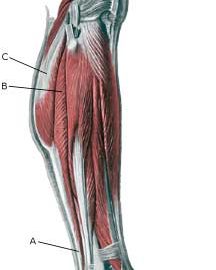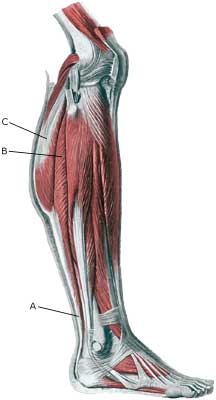|
||
|
||
| Cause: The pressure in a muscle compartment can rise so fast (due to bleeding or fluid extraction) that the muscle membranes cannot keep up. Therefore the pressure in the muscle compartment can increase so greatly that impingement of blood vessels and nerves can occur.
Symptoms: With the acute muscle compartment syndrome there is increasing pain, which is often more powerful than expected from the primary evaluation of the extent of the injury. At the same time sensory disturbances can occur in the toes. Acute treatment: Click here. Acute treatment: Off course compression bandage should not be applied. Examination: The diagnosis is made on the basis of the characteristic history, increased circumference of the calf muscles, which are tight and hard and by a pressure measurement in the muscle compartment (article). Treatment: With the acute muscle compartment syndrome the treatment in severe cases comprises acute splitting of the muscle membrane. It is imperative for the continuing function of the muscle that this operation be acute, which is, of course, only possible if the athlete seeks acute medical attention (article-1) (article) (article-3). Complications: Muscles and nerves can suffer permanent damage if the treatment is not started as soon as possible. Special: Since there is a chance of permanent injury, the injury should be reported to your insurance agency. |


